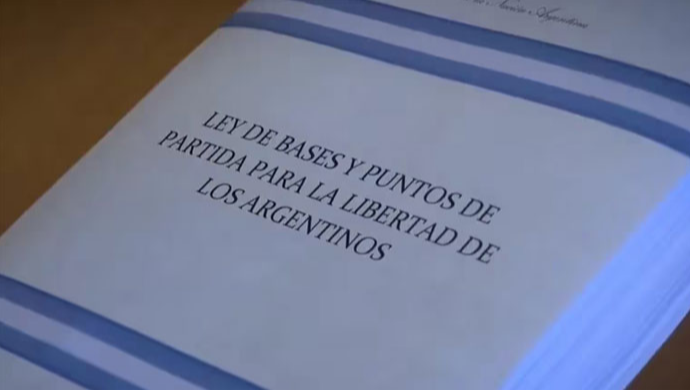
By María Josefina Arce
Difficult days and uncertainty lie ahead for Argentina, following the recent approval by Congress of the criticized Bases Law, a proposal by the government chaired by Javier Milei that, although modified to achieve its sanction after six months of legislative debates, means for part of the citizens a setback in the rights achieved.
There are several articles that have especially generated controversy and rejection by the opposition and social and union organizations. One of them is the Large Investment Incentive Regime, which grants extremely favorable conditions for corporations that invest in the South American nation for more than 200 million dollars.
The authorities defend this section as they consider it necessary to attract capital that will boost the economy; however, it has been described by many as a new legal statute of colonialism.
Former president Cristina Fernández, for example, pointed out that it will lead to the exploitation of Argentina's natural resources by foreign companies, generating, she warned, an extractive economy.
It is considered that it will harm small and medium-sized companies in the South American country, which generate 70% of jobs, which will translate into an increase in unemployment, which already skyrocketed to almost 8% in the first quarter of this year.
Likewise, the restoration of the fourth category of income tax has aroused a lot of controversy, which will affect more than one million workers, who already face difficulties on a daily basis, given the prevailing high inflation and which in the first five months of 2024 accumulated 71.9%.
In contrast, the richest sectors will pay less taxes on personal property, social and union organizations denounced.
The basic law also implies a labor reform, described as regressive, since, in the opinion of experts, it will lead to greater job insecurity and encourage informal work, by eliminating sanctions.
And the controversial privatizations are present in the legislation approved by Congress. Although the number of companies that the government intended to open to private capital decreased considerably, there will still be several public companies that will be put up for sale.
Extremely criticized has been the delegation of extraordinary powers to the president, which although it was reduced from two years to one, will allow Milei to have powers that normally correspond to the legislative branch.
Now a new period of uncertainty opens for Argentines, who since Javier Milei became president last December have not had a respite and now see how a law considered unfairly social has been approved.

